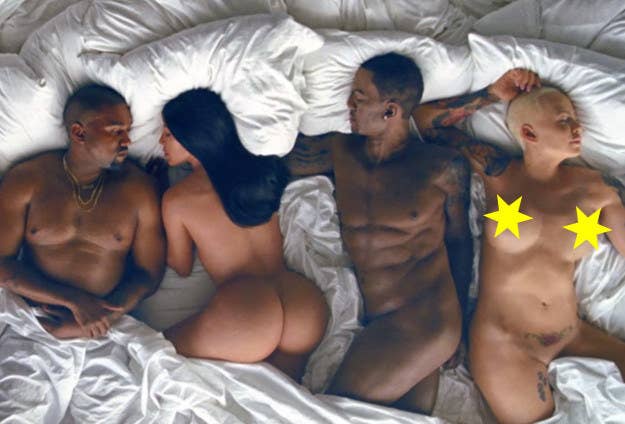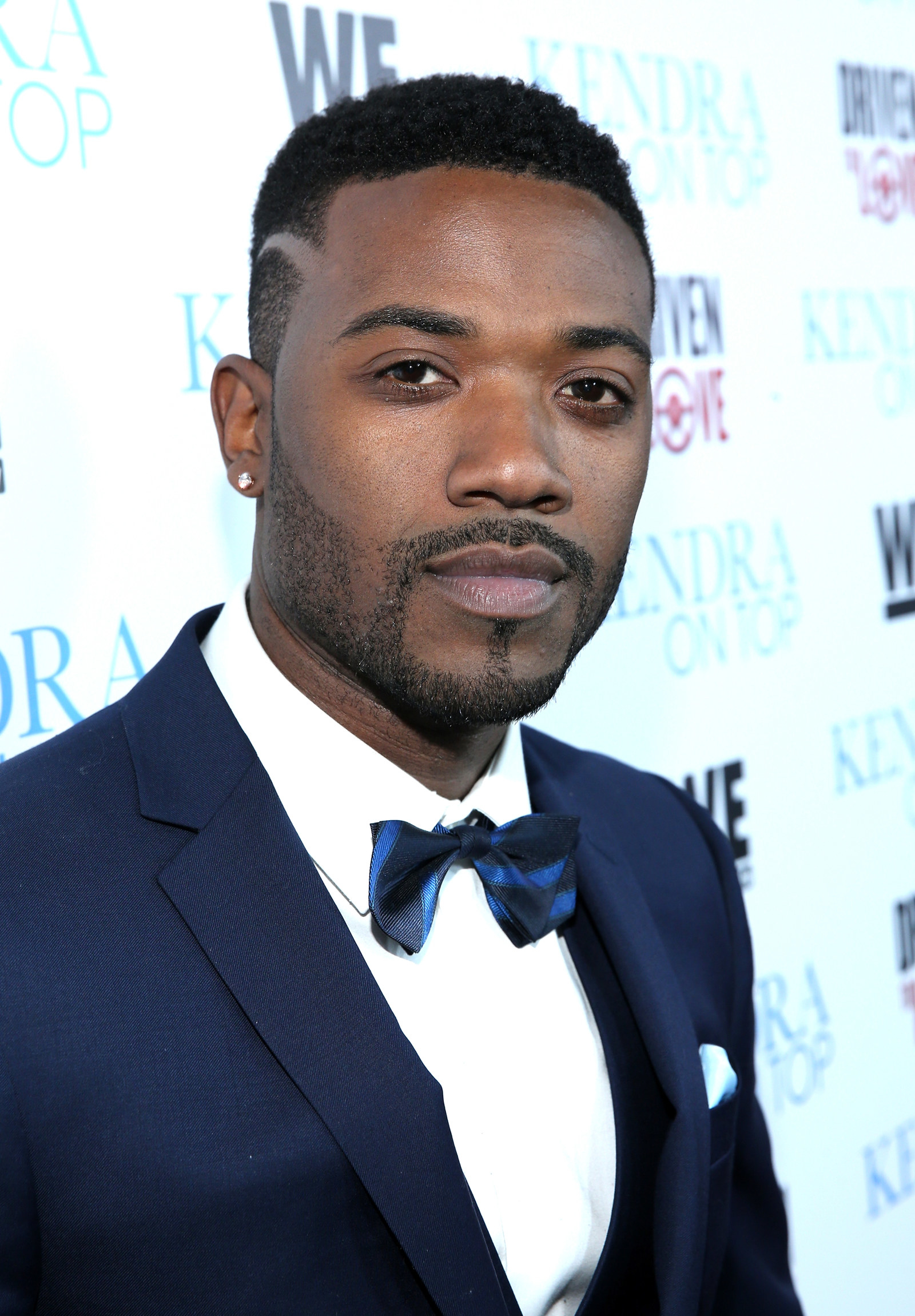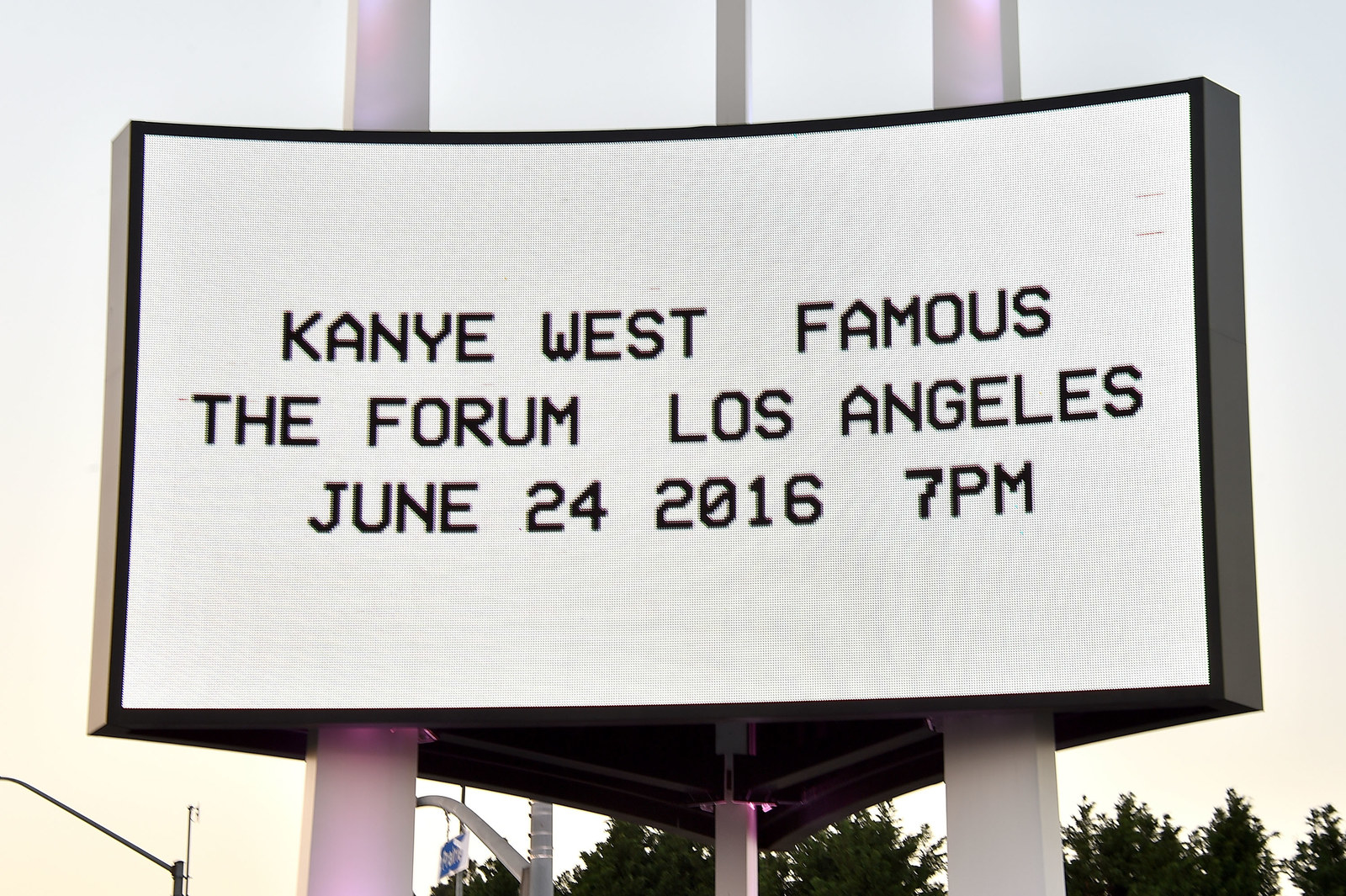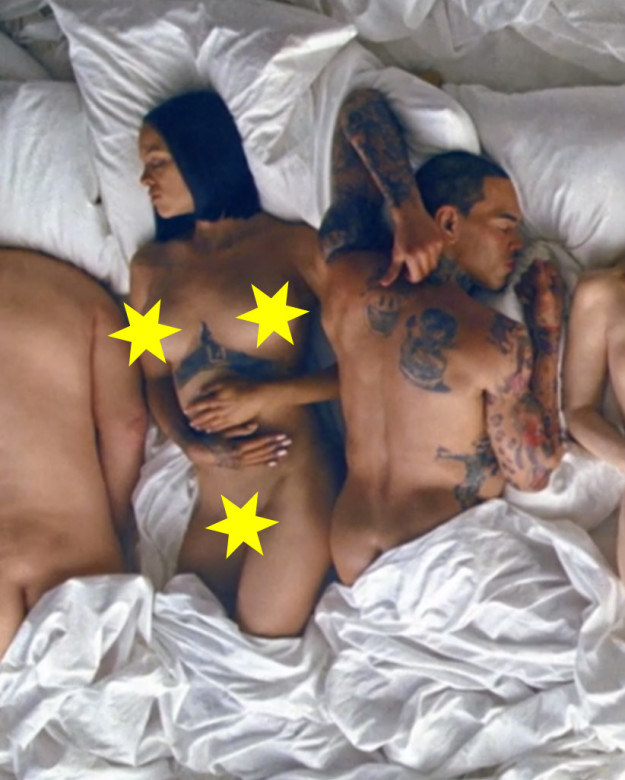
The day after premiering his video for "Famous" — and himself naked in bed with the likenesses of wife Kim Kardashian, Taylor Swift, Bill Cosby, Donald Trump, George W. Bush, Caitlyn Jenner, and others — Kanye West on Saturday posted a quickly deleted request on Twitter.

"Can somebody sue me already #I'llwait"
He may not have to wait long, legal experts told BuzzFeed News.
The video brings together a tableau of people with whom West has engaged during his life of fame. Some, such as Kardashian and Swift, are obvious, others not so much. (West, for example, once professed Cosby’s innocence on Twitter, and publicly accused Bush of not caring about black people.) But all of them are portrayed as naked in bed together, partially covered by a sheet.
And that's where West could be in trouble.
"I think there is a pretty good libel case — it gives the impression they have consented, and that would reflect very badly on the minds of most people...that you are the kind of person who consents to having your nude body shown to sell a record," Bert Fields, who has defended Tom Cruise and other celebrities against libel actions, told BuzzFeed News. "That, I think, would result in some pretty big damages from a jury."

The entertainment manager for Ray J, depicted in the video as lying next to Kardashian, his former girlfriend, told BuzzFeed News they are "considering all options in regard to this video."
"It's both illegal and unfair for them to use his likeness when they are making money off his likeness,” Ray J's manager David Weintraub said. "We just really feel like it is getting old that every time Kanye has a new album or video, he still goes back to Ray J and Taylor Swift and the surrounding drama between them and the Kanye/Kim world to try and cross-promote his product."
Weintraub said his client is focused on five television deals and his company that makes the Scoot-E-Bike, but doubts West would be so accommodating for any cross-promo.
“If it was reversed and Ray J and Taylor chose to always insinuate Kanye as part of their projects, it would be a holy war in the entertainment business between all of their respective camps,” he said.
For his part, West told Vanity Fair in an exclusive interview that the decision to include the people in the video was not a diss or endorsement.
"It’s a comment on fame," he told the magazine.
The video debuted at the L.A. Forum Friday night, and streamed on Tidal for a fee. West has been vague about how the imagery was created, telling Vanity Fair that it was filmed over a three-month period and "cycled through four different formats" among multiple collaborators.

Representatives for most of those portrayed in "Famous," including Swift, Jenner, Trump, Chris Brown, Anna Wintour, and Amber Rose, did not immediately respond to requests for comment — Cosby's camp declined.
Brown, who is depicted lying next to his ex, Rihanna, responded on Instagram with humor, apparently taking issue with too much buttcrack.
A representative for West did not immediately respond to BuzzFeed News inquiries as to whether any of the celebrities signed off on their likenesses being used. If they didn't, Fields said, the celebrities could argue in court that West violated their publicity and privacy rights.

"It is certainly, at a gut level, making money from a phony picture of somebody who never got nude, or at least most of them, for the public and you are making money from presenting them to the public without their consent,” Fields added.
Eugene Volokh, a First Amendment expert and professor at UCLA Law School, agreed that the type of imagery depicted in the video exposed West to greater liability. That's because while filmmakers are generally free to use the names and likeness of celebrities, the courts appear to have carved out an exception for nude images.
“The bottom line is that if some of the depicted people sued Kanye West, they’d have a substantial chance of winning, though not an open-and-shut claim,” Volokh said.
Larry Stein, who is currently representing Blake Shelton in his libel and slander lawsuit for stories that appeared in Life & Style and In Touch, said the odds of success factor heavily in the decision to file a lawsuit that could also generate more attention to the material.
And West probably knows it.
"I think the reason he is saying 'Why haven't you sued me?' and inviting suits is the more controversy he has about it, the more publicity he gets," Stein said.
